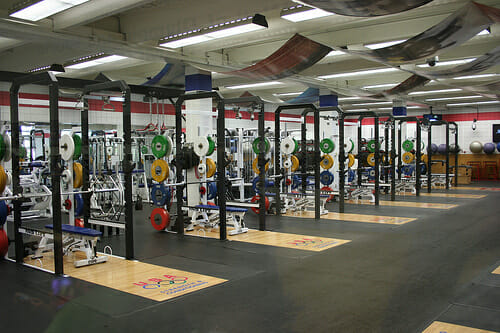May 13, 2013 by Alexander Palmer in Analysis with 11 comments
 I think captains and coaches are sometimes too eager to push their young players to play club over the Summer. Though some college players are playing Club at the highest level for its own sake or just to enjoy themselves, many play in order to improve their college game. I’m not sure that these players will always benefit as much as they think they will.
I think captains and coaches are sometimes too eager to push their young players to play club over the Summer. Though some college players are playing Club at the highest level for its own sake or just to enjoy themselves, many play in order to improve their college game. I’m not sure that these players will always benefit as much as they think they will.
I want to offer an alternative. Though I certainly don’t want to say that this is right for all players, just as I don’t think club is right for everyone, college players who join club teams do not have a proper offseason, which is the time when the greatest gains in athleticism can be made.
It is already extremely difficult to maximize strength gains during the school year. College Ultimate is somewhat unique in that it has two competitive seasons. During the fall and spring seasons, there are significant obstacles to efficiently developing strength and power. The first main issue is time commitment. During the school year, players have to balance practice, their social lives, and schoolwork. Adding serious weight training to this workload is hard. The bigger problem for is that a regular practice schedule makes it difficult to properly recover from serious lifting work.
Something to remember about weight training is that the lifting is just the stimulus. The strength gains come over the next couple days, during recovery. If you interrupt that recovery with a hard practice, there are two undesirable outcomes: You could prevent recovery, continually weakening your body, and you could end up making the wrong sort of gains.
While endurance training is important, it should not replace strength training. It is impossible to overload your muscles at practice to stimulate maximal strength gain and your body might develop based on the wrong set of stimulus to build strength. Such work can only be done effectively during the off-season. It is true that Club is not always a major time commitment. Nor do club practices generally get in the way of recovery. However, tournaments are still a significant obstacle to structured conditioning over the summer. After a tournament, it’s fairly unlikely that a player will be able to have an effective workout for a day or two, especially if his/her body is still getting accustomed to playing tournaments.
Furthermore, the mental and physical strain of tournaments builds up over the season. Without taking an off-season to recover, athletes become more and more likely to develop or exacerbate a chronic injury. Playing club does not dramatically improve throwing or catching. The majority of club teams don’t practice more than twice a week. While this might be enough for elite players to maintain their skills, young college players shouldn’t be trying to merely maintain. They should constantly working to improve their skills. This can’t be done by playing two days a week. What they should focus on is simply perfecting throws and catches by running structured throwing drills like Zen or Kung Fu.
Of course, this is not true for everyone. Playing club can offer many benefits that are not as easy to quantify as a max squat or 40 time. Club teams often teach concepts at a much higher level and train players to see the field better. It can also offer an important attitude adjustment. Getting to play against Slow White and District Five in 2011 dramatically changed my concept of the way I could play and made me want to become a better player than I would have otherwise (though a broken ankle next year had something to say about that). It can also teach a high school stud that he’s not ‘The Man’ anymore. Furthermore, teams like Dartmouth and Pitt who run team-only clubs gain immeasurable benefits by getting more onfield hours with their teammates.
Even so, young, inexperienced players may gain more from hitting the gym and throwing regularly than joining a mid-level club team. Most non-elite club teams don’t provide structured enough practice to drill the specific skills young players need to develop, while club tournaments place enough stress on the body and mind to provide a significant obstacle to serious strength training. While they may benefit from playing club, players looking to improve their college game could be better off taking a true offseason to train.